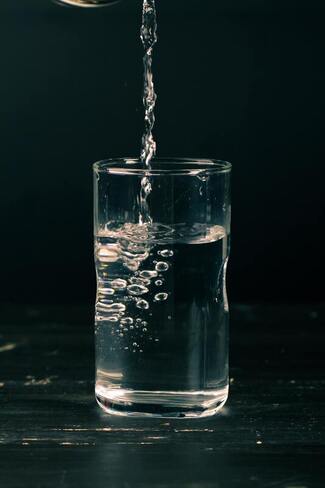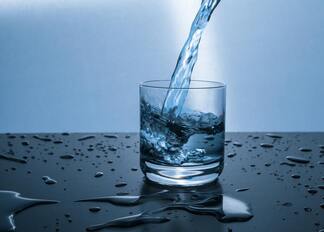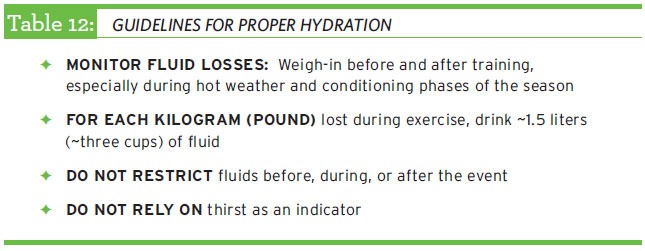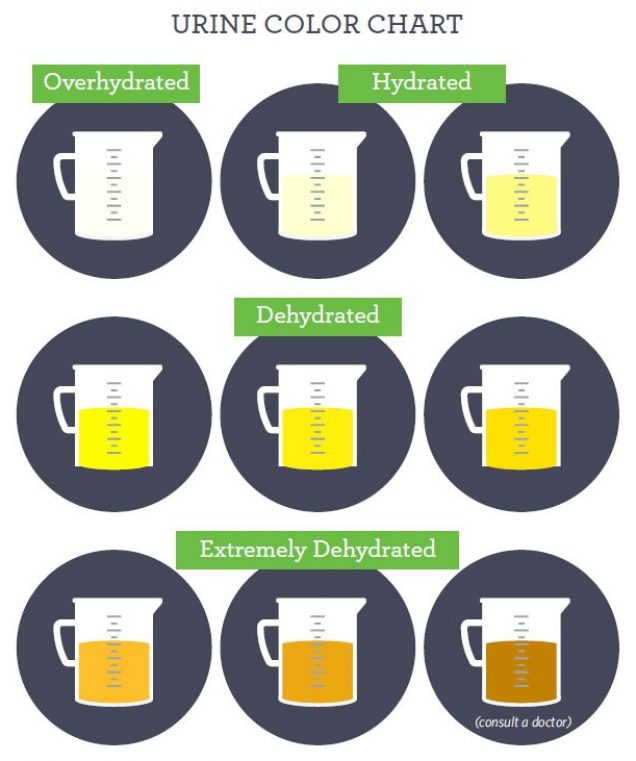“In advanced societies, thinking that tea, coffee, alcohol, and manufactured beverages are desirable substitutes for the purely natural water needs of the daily “stressed” body is an elementary but catastrophic mistake.” Welcome back to the BSNF blog This week with Wellness That Works, we are discussing skin health. Many of us are also going through a heat wave. So naturally, a discussion about hydration seemed appropriate! (shout out to my wife who gave me the idea) We have all heard about the recommendations for hydration - "at least 8-10 cups per day", "if you are thirsty, your are already dehydrated", "if your urine is clear, you are adequately hydrated". All of those are true, BTW. But it is right up there with sleep recommendations. We hear it so much that we tend to gloss over it and take it for granted. Hydration, like sleep, is a HUGE underlying health factor that has far reaches in many other factors of our overall health. However, this impressive list of benefits mostly goes unnoticed throughout our daily lives. Let's look briefly at how hydration is linked to skin health Hydration and Skin First, a heavily perpetuated myth dispelled! One of the more pervasive myths regarding water intake is the improvement of the skin, in terms of complexion. By improvement, it is generally understood that individuals are seeking to have a more “moisturized” look to the surface skin, or to minimize acne or other skin conditions. Numerous lay sources such as beauty and health magazines as well as the Internet suggest that drinking 8–10 glasses of water a day will “flush toxins from the skin” and “give a glowing complexion” despite a general lack of evidence (sourced here and here) to support these "promises". This should not be confused with the positive impact of hydration in otherwise dried out skin due to dehydration. Now read on! Now some skin hydration facts:
Hydration and Performance
Here are some more health effects of proper hydration: Energy: Suboptimal hydration slows the activity of enzymes, including those responsible for producing energy, leading to feelings of fatigue. Even a slight reduction in hydration can lower metabolism and reduce your vitality. OVERHYDRATION (or, hyponatremia) is also a serious condition. MORE water is not necessarily BETTER! Digestion: Our bodies produce an average of 7 liters of digestive juices daily. When we don’t drink enough liquid, our secretions are more limited and the digestive process is inhibited. (Note that drinking too much water all at once, particularly with food, can also dilute digestive juices, reducing their efficacy and leading to indigestion. It is a good hydration habit to drink water between meals and to take a break from 30 minutes before a meal until 30 minutes after.) Regularity: As partially digested food passes through the colon, the colon absorbs excess liquid and transfers it to the bloodstream so that a stool of normal consistency is formed. When the body is low on water, it extracts too much liquid from the stool, which then becomes hard, dry and difficult to eliminate. Slowed elimination contributes to toxicity and inflammation. Blood Pressure: When we are chronically dehydrated, our blood becomes thicker and more viscous. Additionally, in response to reduced overall blood volume, the blood vessels contract. To compensate for the increased vein-wall tension and increased blood viscosity, the body must work harder to push blood through the veins, resulting in elevated blood pressure. Stomach Health: Under normal circumstances, the stomach secretes a layer of mucus (which is composed of 98 percent water) to prevent its mucus membranes from being destroyed by the highly acidic digestive fluid it produces. Chronic dehydration, though, impedes mucus production and may irritate and produce ulcers in the stomach lining. Respiration: The moist mucus membranes in the respiratory region are protective; however, in a state of chronic dehydration, they dry out and become vulnerable to attack from substances that might exist in inhaled air, such as dust and pollen. Hydration: Dehydration causes enzymatic slowdown, interrupting important biochemical transformations, with acidifying results at the cellular level. The acidification of the body’s internal cellular environment can be further worsened when excretory organs responsible for eliminating acids (e.g., the skin and kidneys) don’t have enough liquid to do their jobs properly. An overly acidic biochemical environment can give rise to a host of inflammatory health conditions. Weight Management: Feelings of thirst can be confused with hunger, both because eating can soothe thirst and also because dehydration-induced fatigue is often misinterpreted as a lack of fuel (e.g., sugar). Both dynamics can lead to false sensations of hunger, triggering overeating and weight gain. Inadequate hydration can also promote the storage of inflammatory toxins, which can also promote weight gain. Clinical studies show that in 37% of people the thirst mechanism is so weak that thirst is confused with hunger. Cholesterol: Cholesterol is an essential element in cell membrane construction. When we are in a state of chronic dehydration and too much liquid is removed from within the cell walls, the body tries to stop the loss by producing more cholesterol to shore up the cell membrane. Although the cholesterol protects the cell membrane from being so permeable, the overproduction introduces too much cholesterol into the bloodstream. Kidney and Urinary Health: When we don’t drink enough liquid, our kidneys struggle to flush water-soluble toxins from our system. When we don’t adequately dilute the toxins in our urine, the toxins irritate the urinary mucus membranes and create a germ- and infection-friendly environment. Joint Health: Dehydrated cartilage and ligaments are more brittle and prone to damage. Joints can also become painfully inflamed when irritants, usually toxins produced by the body and concentrated in our blood and cellular fluids, attack them, setting the stage for arthritis. Aging: The normal aging process involves a gradual loss of cell volume and an imbalance of the extracellular and intracellular fluids. This loss of cellular water can be accelerated when we don’t ingest enough liquids, or when our cell membranes aren’t capable of maintaining a proper fluid balance. As you can see, proper hydration goes a LONG way in keeping us healthy and active. It is also EASY to do! Now go fill that tumbler and keep it handy throughout the day!
0 Comments
Leave a Reply. |
Broad Scope Narrow Focus BlogWelcome to the Broad Scope Narrow Focus Blog! I hope you find a lot of useful and applicable information as we explore the broad world of Wellness together. Check in often, as there will be new posts weekly! Enjoy Archives
September 2021
Categories |
Services |
Hours & Contact InformationHours of Operation: The Facility is staffed Tuesday - Thursday 7a-5p
*Facility is accessible 24 hrs / 7 days a week e . [email protected] p . (616) 787 - 7710 |






 RSS Feed
RSS Feed